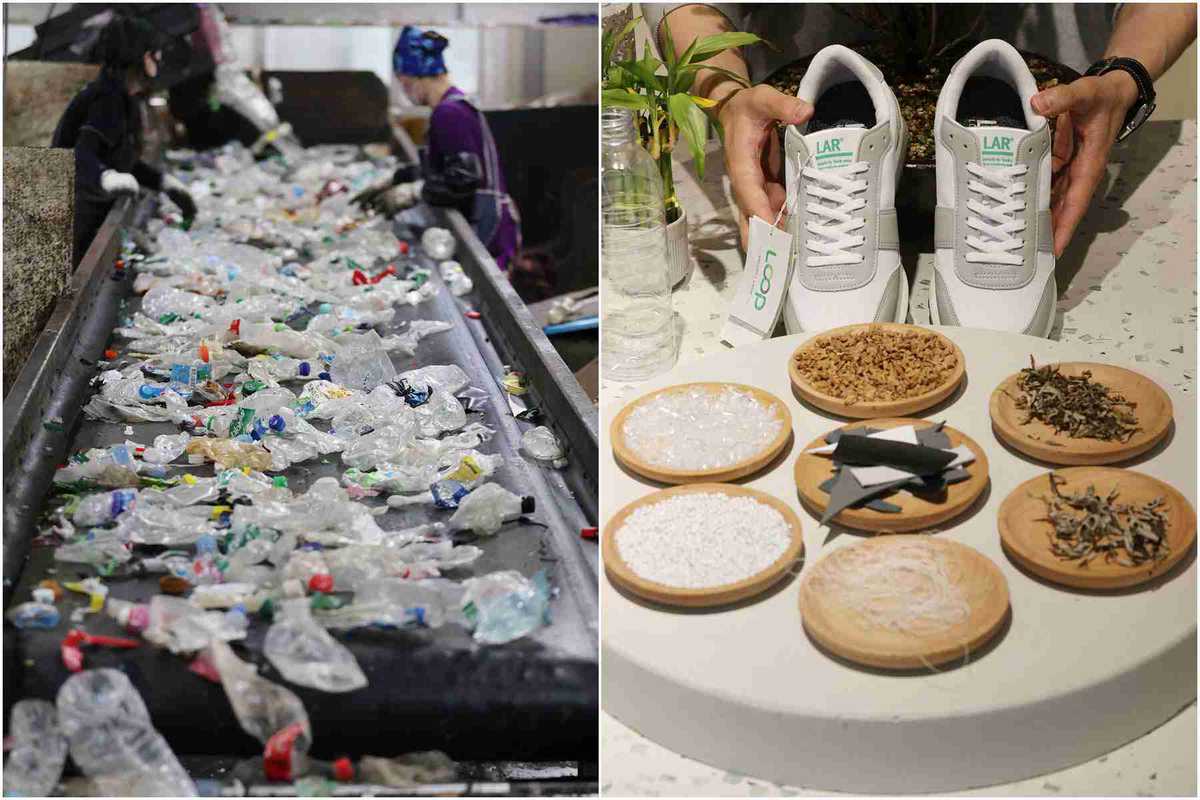Huge challenge looms to achieve pact on plastic


Christina Dixon, deputy campaign lead for oceans at the Environmental Investigation Agency, said some fossil fuel companies view plastics as a "plan B". In Europe, about 6 percent of oil and gas is used to make plastics, but this proportion is expected to grow now that alternatives for power and transportation free of fossil fuels are on the rise.
Producing plastic is energy intensive and includes the use of fossil fuels. When incinerated, the material releases greenhouse gases back into the atmosphere.
In the United States, a recent study by the University of California found that across their life cycle, plastics contribute 3.8 percent of global emissions. If the plastics industry were a country, it would be the fifth-largest emitter. Demand is expected to rise by about 4 percent annually, meaning that by 2050 greenhouse gases from plastics will account for 15 percent of global emissions.
Dixon said: "The oil and gas industry will not be particularly thrilled to have caps or phasing down on virgin plastic production. There's a lot of data to substantiate that the growth of the plastics industry is part of their business model."
Some fossil fuel industry players lobbied for a less expansive treaty ahead of the Nairobi assembly. The American Chemistry Council, a trade association that represents oil energy companies, including Shell and ExxonMobil, voiced support for an alternate and more limited treaty focused mainly on marine pollution and recycling.
Dixon said that for the treaty to be a success, active support will be needed from the world's largest plastics producers, which include China and the US.
She added, "National legislation in China has been quite progressive when it comes to plastics-for example, the banning of imports of plastic, and setting requirements for agricultural plastics."
In 2018, China halted imports of plastic waste on environmental grounds, and the following year the country drafted new rules to control rural and agricultural pollution from plastics. In September, China published a five-year plan to tackle pollution.
"It is interesting to see these policies happening domestically, which might shape opinion on international policy," Dixon said.
Forbes, from Greenpeace, said nations and businesses must step up and take action while the treaty is being negotiated over the next two years.
"In the interim, governments around the world must implement national policies that push big brands to phase out single-use plastic," he said.
Last year, the European Union introduced legislation to phase out single-use plastics, starting with 10 common products, including cotton bud sticks, drinking straws and cutlery. Meanwhile, more than 250 companies have signed a pledge to eradicate plastic waste from packaging by 2025.
Consumer products giant Unilever has promised to halve its use of virgin plastics by 2025 and reduce plastic used in packaging by 100,000 metric tons on 2018 levels. The company has also joined forces with Alibaba Group to launch a large-scale closed-loop plastic recycling system in China called Waste Free World.
- All-China Women's Federation sends much-needed relief supplies to Xizang
- More aftershocks expected following deadly Xizang earthquake
- HKSAR chief executive mourns victims of Xizang 6.8-magnitude quake
- Milestones in China's high-speed railway development
- All-China Women's Federation raises over 13 million yuan for quake relief in Xizang
- China's lithium reserves rank second in the world





































